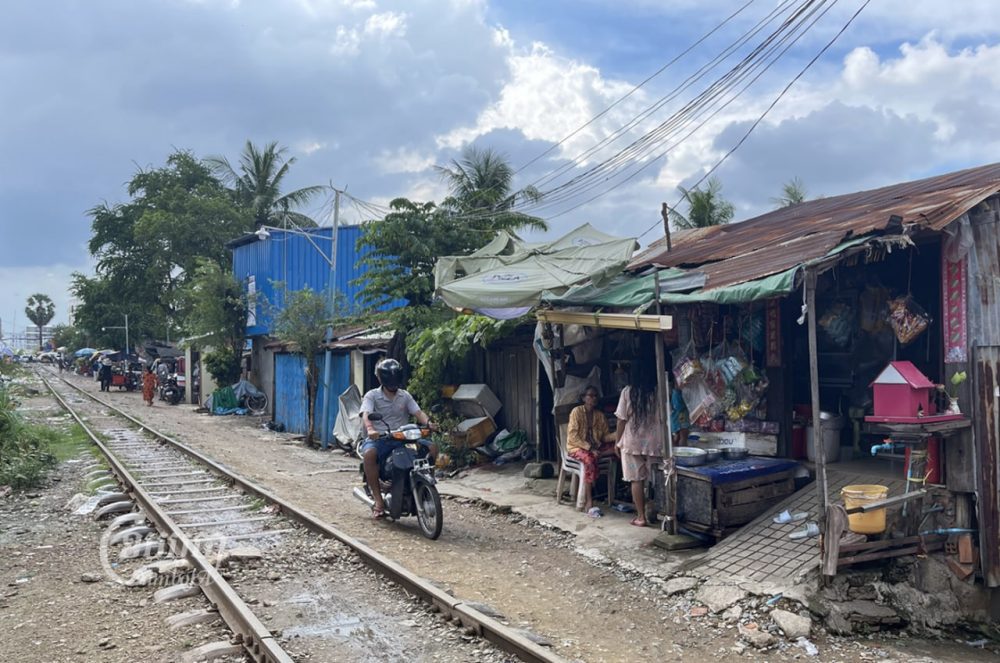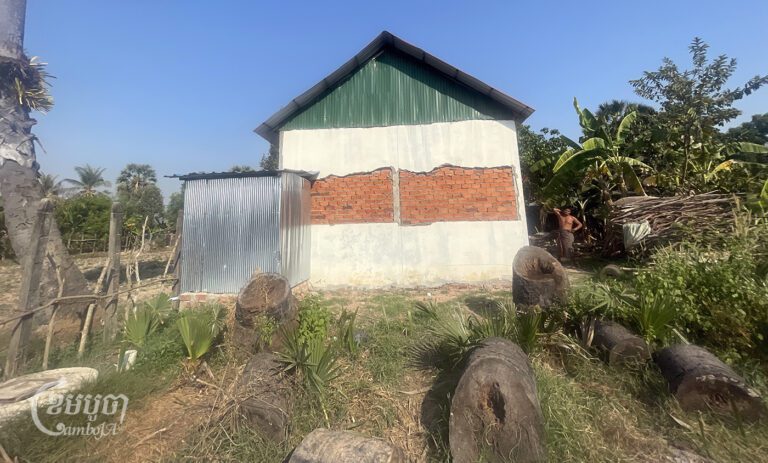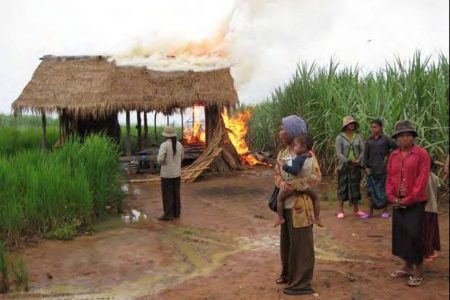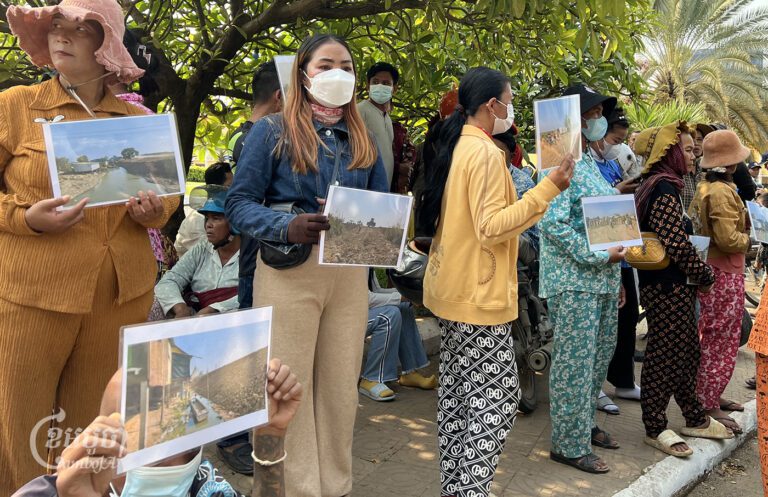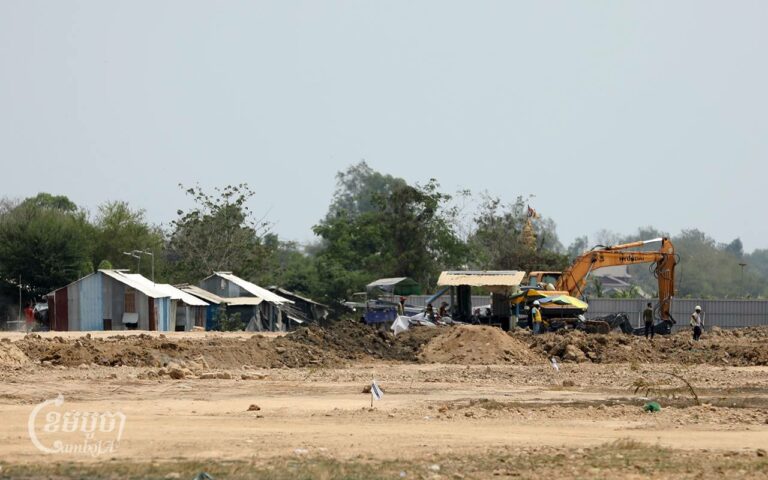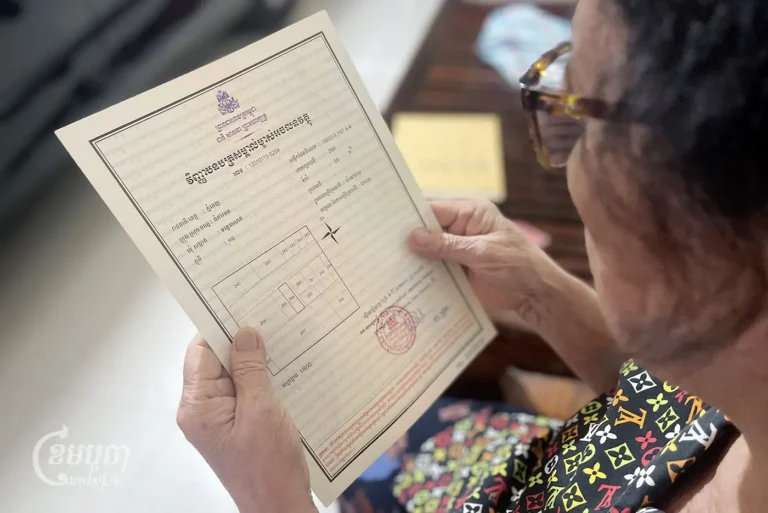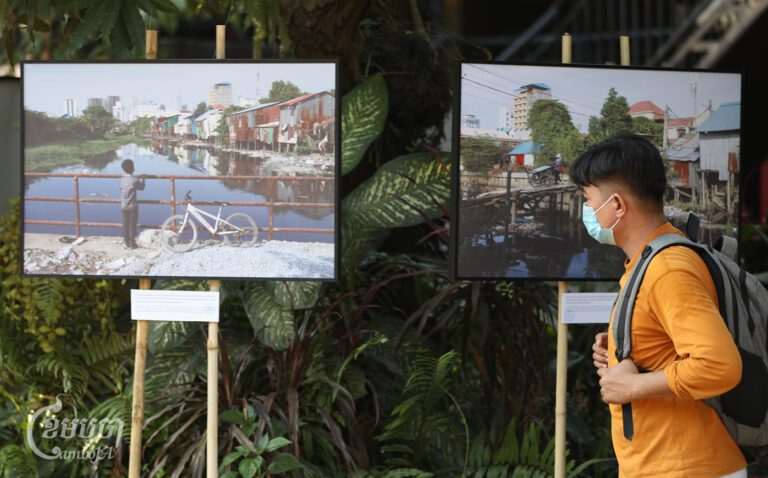Eighteen civil society organizations called for fair compensation and solutions for communities caught in the Kingdom’s long running development-related land disputes in a joint-statement on October 3, marking World Habitat Day and the right to housing. They also urged authorities to drop charges against villagers scheduled to head to trial on October 6 for protesting their evictions from the site of Phnom Penh’s new airport.
“People are living in fear, losing their freedom and in despair for their future, which is contrary to the principle of human rights and democracy,” said eighteen civil society organizations, including human rights groups CCHR and Licadho, in a joint statement.
They highlighted the plight of more than 300 families in Kandal province’s Kadal Stung district and Takeo province’s Bati district, who are being displaced to make way for a $1.5 billion airport built by Overseas Cambodia Investment Corporation (OCIC), owned by well-connected Oknha Pung Kheav Se.
The families previously rejected an offer of $8 per square meter from OCIC, which residents like Nai Phorn say is below market value.
“We started with empty hands after the Khmer Rouge ended. Now we are forced to leave due to the development and being evicted without proper compensation,” Phorn said. “I do not think it will get better because they already took our land and continue to ignore our demands.”
Kandal provincial governor Kong Sophorn said that the company’s compensation policy would not be changed.
“We are discussing how to encourage people to accept this compensation as soon as possible,” he said. “Those who have not yet received compensation now, they can come to receive it at any time they need.”
Authorities began clearing the community’s farm land in September sparking protests from residents and clashes with police.
Nine community members who participated in the protests now face charges including incitement to commit a felony and obstruction of public officials.
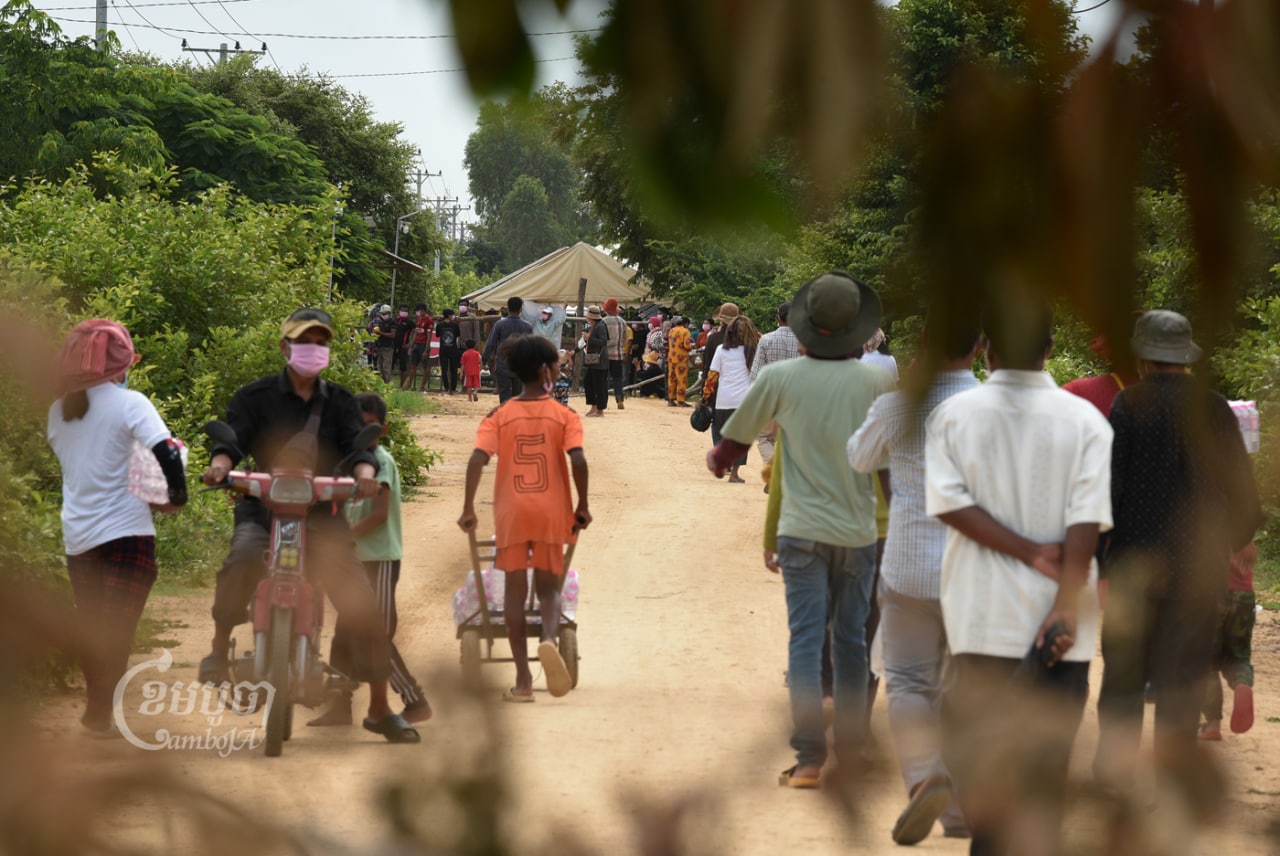
Between 2019 and 2021, at least 5,000 families were affected by land disputes and forced evictions, 21 land activists were arrested and 10 remain incarcerated, according to Licadho. More than 40,000 people have been evicted from more than 50 communities across Phnom Penh since the 1980s, the NGO Sahmakum Teang Tnaut (STT) has documented.
Market-value compensation for lost land helps avoid disrupting the stability and financial security of displaced residents, said Licadho’s Operations Director Am Sam Ath.
“We want development, but it must be transparent and fair, so that people can get a decent solution and be able to live decently as human beings,” he said.
While in theory Cambodia has laws designed to support communities affected by development, in reality these laws are not properly implemented, said STT’s Executive Director Soeung Saran. There must be participatory, inclusive conversations with local communities before development occurs, he added.
Residents from other communities experiencing evictions echo the sentiments of Phorn and his wife, preferring to stand their ground rather than accept compensation and relocation they believe is unjust.
Chhouk Ratana, one of dozens of Phnom Penh residents affected by a road and drainage project alongside a railway stretching from Tuol Kork district to Russei Keo, said she has refused to relocate to a different province as authorities ordered. Instead, she and her neighbors continue to ask for a commensurate plot of land elsewhere in their neighborhood.
“Here we can earn some money to make a living and when we are moved away, we will lose everything, we are poor and worried about losing our home,” she said.
In another ongoing dispute, Hy Sokhuy from Kambor village in Russey Keo district is among 244 families scheduled to be displaced for incoming road construction. After a series of protests, Sokhuy and her neighbors have managed to keep their homes as authorities have delayed development. But the threat of relocation remains.
“We had been living here for years and the road was just being developed later. If we move to the new site, we will start a new life, so we cannot,” she said. “They told us to relocate elsewhere… I didn’t accept the offer and all the affected families here refused to move. We want to stay.”


